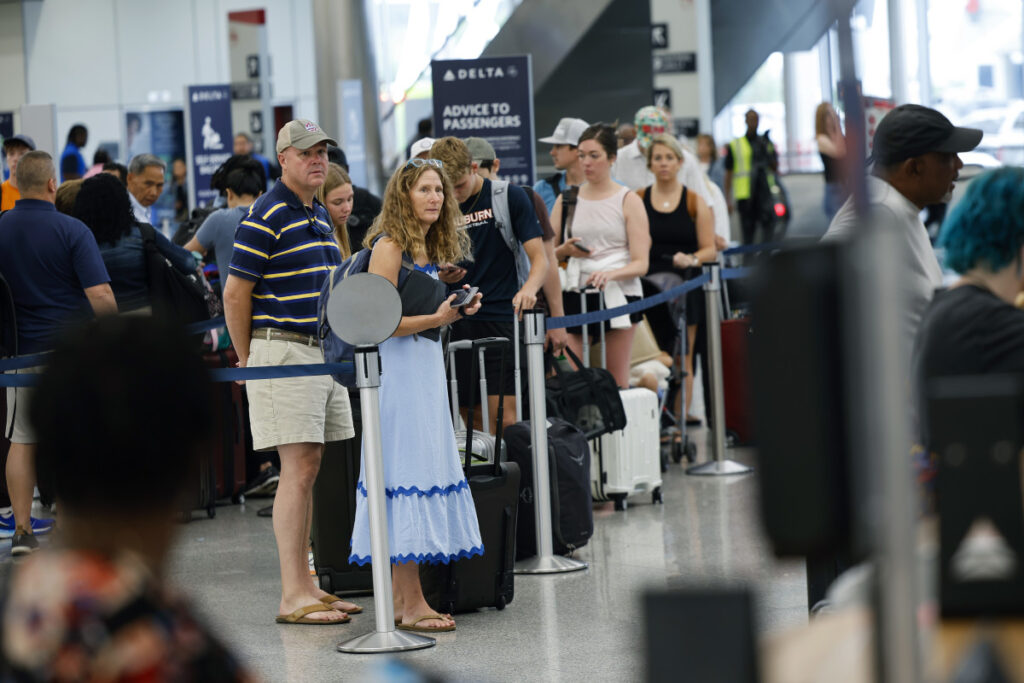
Nearly 400 flights were canceled at Hartsfield-Jackson Atlanta International Airport on Saturday, as severe thunderstorms and hail swept through the area overnight. The cancellations at one of the world’s busiest airports come during the peak of July 4th holiday travel, leaving thousands of passengers stranded or delayed.
The powerful storm system, which struck Friday evening, led to ground stops, 90 flight diversions, and even a temporary evacuation of the airport’s air traffic control tower, according to ABC News. High winds, lightning, and quarter-inch hail brought operations to a standstill, creating a ripple effect that extended into the weekend.
Delta Air Lines Hit Hard by Storm
The majority of the disruptions were linked to Delta Air Lines, which canceled approximately 380 flights. The airline also conducted emergency inspections on nearly 100 aircraft for potential hail damage. Although most planes were cleared to return to service by Saturday morning, Delta warned that delays would persist as crews worked to restore normal schedules.
“Delta people are working as safely and quickly as possible to recover flights impacted by thunderstorms, lightning, hail, and winds at our Atlanta hub Friday night,” the airline stated. “We thank our customers for their continued patience and understanding.”
Impact on Air Traffic Control and Passengers
The Federal Aviation Administration confirmed that the air traffic control tower at Hartsfield-Jackson was briefly evacuated due to intense wind conditions. During this time, only three personnel—a controller, a supervisor, and a traffic manager—remained to manage limited operations.
The storm caused a cascade of diversions across the Southeast, delaying hundreds of passengers and leaving others stranded overnight. Social media was flooded with images of crowded terminals and travelers seeking information as the weather passed.
“The skies began to clear Saturday morning, but the damage was already done,”
travelers were advised to check with airlines before heading to the airport, as residual delays and rescheduled flights were expected to continue throughout the day.
Weather Vulnerability in Peak Travel Season
With peak summer travel in full swing, this sudden disruption highlights the vulnerability of even the most sophisticated airport systems to severe weather. Hartsfield-Jackson, serving as a major hub for both domestic and international flights, is particularly susceptible to such disruptions due to its high traffic volume.
Experts note that while technological advancements have improved weather forecasting and response times, the unpredictability of severe weather events continues to pose significant challenges to air travel.
“This incident serves as a stark reminder of the impact that weather can have on aviation,”
said aviation analyst John Smith. “Airports and airlines must continuously adapt their strategies to mitigate these risks.”
Looking Ahead
As the airline industry navigates the aftermath of this disruption, passengers are encouraged to remain informed about their flight statuses and to plan for potential delays. The situation underscores the importance of flexibility and preparedness in travel plans, especially during busy holiday periods.
Meanwhile, Hartsfield-Jackson and other airports across the nation will likely review their emergency response protocols to better handle similar situations in the future.
This development follows a trend of increasing weather-related disruptions in recent years, prompting calls for enhanced infrastructure and more resilient operational strategies within the aviation sector.






